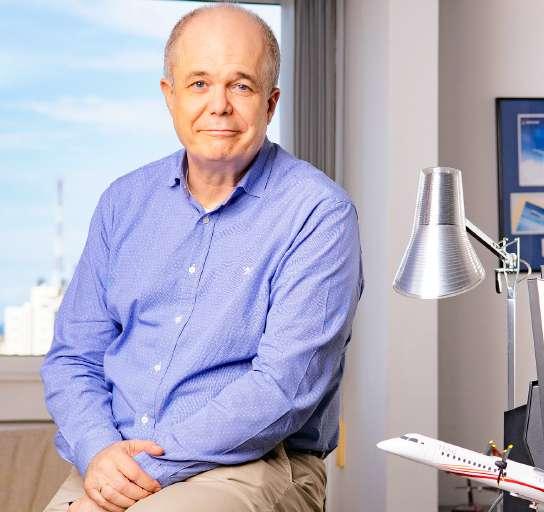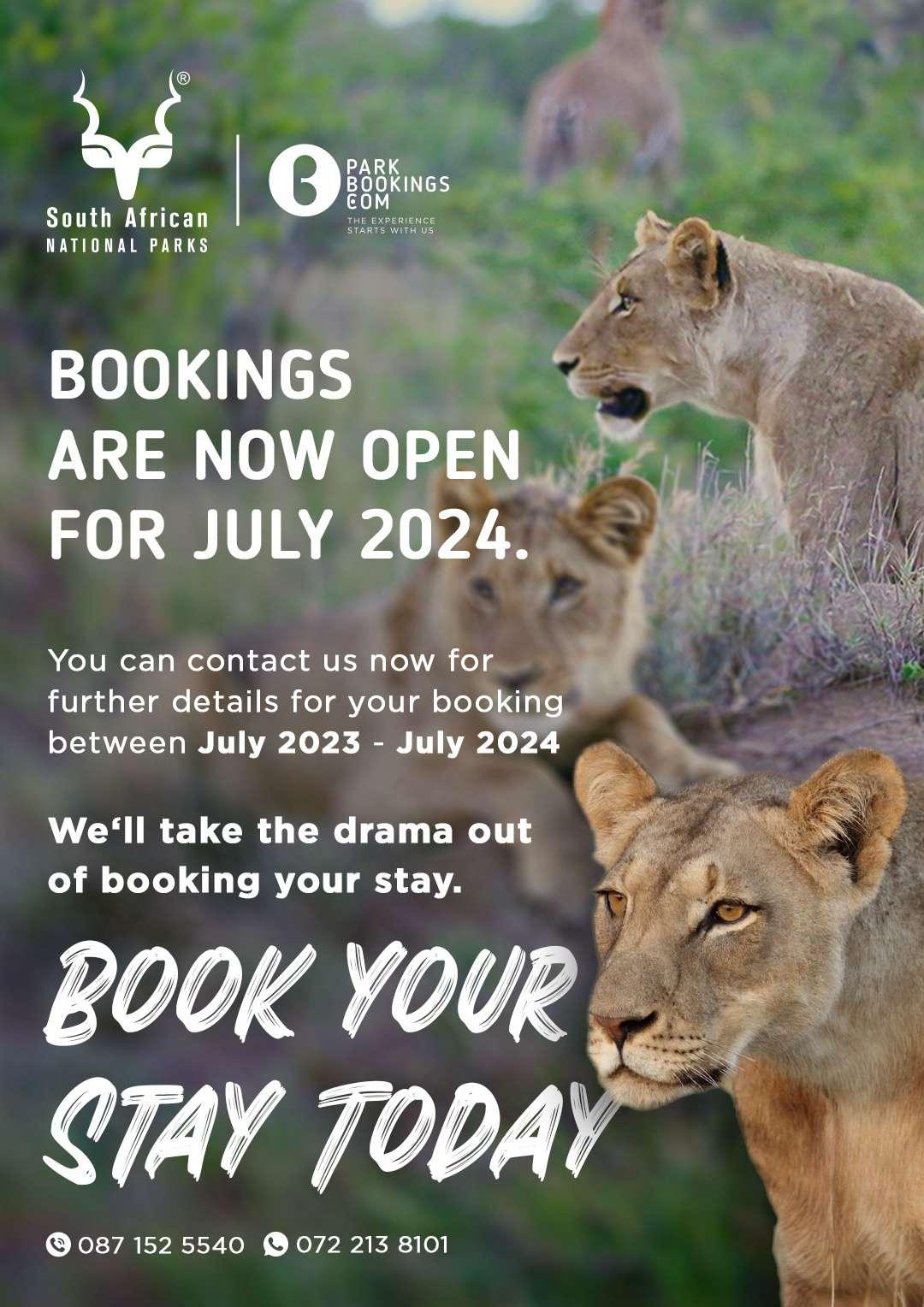
5 minute read
FLYING HIGH WITH TAAG ANGOLA AIRLINES:
MEET THE CEO BEHIND THE CLOUD NINE!
Interview with Eduardo Fairen Soria, CEO, TAAG Angola Airlines
Advertisement
Elevating cross-border trade to new heights, the Spanish Chamber of Commerce RSA extends a warm invitation to its members and friends to connect with the distinguished CEO of TAAG Angola Airlines
A valued member of the Chamber, the airline's CEO serves as a beacon that drives international trade. ����
1 TAAG Angola Airlines is undergoing significant restructuring. Can you tell us more about it?
To mark our transformation, we have established our new headquarters in the modern location of Talatona in Angola and launched an enhanced website Crucial to our reformation are partnerships with Iberia and Gol, broadening our footprint to 42 destinations in Europe and 40 in the Americas
We are accommodating the company procedures to the best practices within the industry and recruiting talent We are upgrading our fleet within a multi-brand strategy so we have assured operational efficiency matching the aircraft with the proper flight typology Thus we have orders ongoing for narrow body Airbus A 220s set to be delivered from April 2024 ahead, and are engaged in negotiations for wide-body fleet replacements
Our business blueprint for 2023-2027 envisions making TAAG the key aviation connector within Africa and to the rest of the world
The restructuring process also includes a switch to a more flexible external GSA system, and a strategic withdrawal from non-core services. Overall, our goal is to realign TAAG with current market realities and cement our standing in the international aviation scene
2. Is privatisation on the horizon?
The Angolan Government's idea is to privatise the aviation sector, as commencing in January 2025, the country will be covered by the "open skies agreement", the Single African Air Transport Market (SAATM) Prior to the privatisation, TAAG Management Board is inducted to restructure and drive the transformation within the company
The outcome is to align TAAG with the best practices in aviation and implement a roadmap for business growth. So far, there is no formal process or deadline for the privatisation to occur, only expressions of interest from large companies/investors, local and external In any case, please bear in mind that the privatisation process is managed directly by the Angola state via IGAPE (Institute for the Management of State Assets and Equity)
3. How will implementing the African Open Sky policy affect TAAG Angola Airlines and its operations across the continent?
Implementing the African Open Sky policy, or the Yamoussoukro Agreement, will bring about significant changes for TAAG Angola Airlines, and we're set to join the Single African Air Transport Market (SAATM) in 2025 However, we do harbour concerns, mainly centred around fair competition Predatory commercial practices and price dumping pose significant challenges to African airlines, TAAG included The crux here is that without implementing proper safeguards and regulations, opening up traffic rights might unintentionally erode the competitive standing of most African airlines We believe this policy could favour growth, but it should be handled carefully to ensure a level playing field
4. We've heard about the exciting New Luanda International Airport set to open in 2024. How will it impact TAAG's operations and the aviation industry in Angola? Will it influence visa processes?
The opening of Luanda’s new International Airport in the first half of 2024 marks a transformative milestone for TAAG Angola Airlines and Angola's aviation industry. Shifting operations to this new facility will be a challenge that we and other airlines are ready to embrace This airport, capable of handling 25 million passengers and 50 thousand tons annually, will significantly augment our operational opportunities. With two parallel runways and advanced facilities, it is set to be Africa's most innovative hub and will greatly facilitate our operations, helping elevate our connectivity level
The airport's opening aligns with our aim to reestablish TAAG as the central hub for Southern Africa, connecting Africa, the Americas, and Europe We are adjusting our operational model to operate as a connector, bringing more regional connectivity, linking domestic and inter-continental services, and opening new and strengthening existing destinations egarding visa processes, the Angolan authorities, in tandem with the tourism sector, are undertaking efforts to streamline these administrative issues The new airport's advanced infrastructure and technological capacity will offer optimised conditions for migration services to handle visa procedures, facilitating a more open and welcoming Angola
5. Air cargo services are vital for economic development. How does TAAG Angola Airlines facilitate air cargo transportation and contribute to the growth of industries in Angola and beyond?
Air cargo services are a cornerstone of TAAG Angola Airlines, serving our strategic interests and bolstering economic growth. This commitment reflects our geographical advantage, connecting Asia and South America via Africa, and despite the shortage of suitable cargo aircraft, we are exploring all options, including new acquisitions. During the pandemic, we experienced robust cargo traffic and continue to meet steady cargo demand from China, South America, and Africa Our ambition to expand this service involves utilising larger aircraft and sourcing freighters until we establish our own fleet. We aim to strengthen our link between import/export hubs through our vital cargo services, thereby contributing to industry growth in Angola and beyond
6. How has your fleet become more ecofriendly?
TAAG's adoption of the Airbus A220 technology demonstrates our commitment to sustainable practices in aviation Known for their quality, comfort, and fuel economy, these aircraft are a significant step towards greener operations. This move aligns with the mandate from the International Civil Aviation Organization (ICAO) and International Air Transport Association (IATA) to reduce the environmental impact of the aviation sector. With aviation being essential for global connectivity, adopting new aircraft construction and engine development technologies is crucial
These technologies show meaningful progress in fuel efficiency, with each generational transition taking about 20 to 25 years. However, we are mindful of the additional challenges that lie ahead The production and implementation of Sustainable Aviation Fuel (SAF) in Africa remain under exploration due to its cost and the industrial capacity needed for large-scale production. As the flagship airline of Angola, it's our social responsibility to confront these challenges and strive for a more sustainable future
7 How do the aviation industry's goals to become more environmentally friendly and sustainable impact you and other African airlines?
The aviation industry's push towards environmental sustainability, particularly the European obligation for 2% SAF on all departing flights, has substantial implications for African airlines. This measure poses significant challenges
As we currently lack SAF production facilities, the implementation timeline appears unrealistic. Moreover, Africa's resource constraints make such measures particularly challenging to uphold It harks back to the noise abatement restrictions in 1995, which required years for effective implementation
While the move towards sustainability is undoubtedly vital and commendable, the timing and resource requirements for such changes must be realistically evaluated, particularly in African regions Hence, Africa must stand its ground and advocate for sustainable practices tailored to its unique constraints and capacities
8 What does the future hold for TAAG Angola Airlines?
TAAG Angola Airlines has ambitious plans for the future TAAG is working to make Luanda a strategic hub in Africa for East-West and North-South air transport, boosted by organic growth or code-share partnerships

We recently presented our 2023-2027 business plan, envisioning TAAG as the preferred choice for connecting Africa with the world and within the region This involves transforming TAAG into a modern, innovative airline with operational excellence, commercial superiority, organisational efficiency, and financial sustainability as its strategic pillars
As part of our growth plan, we've ordered 15 Airbus A220-300 model aircraft, with deliveries starting from April 2024 Our fleet, currently consisting of 21 aircrafts, is set to grow to 50 by 2027, indicating our commitment to significant growth
We're confident in our vision, ready to inspire the world with our energy, and eager to make dreams take off


